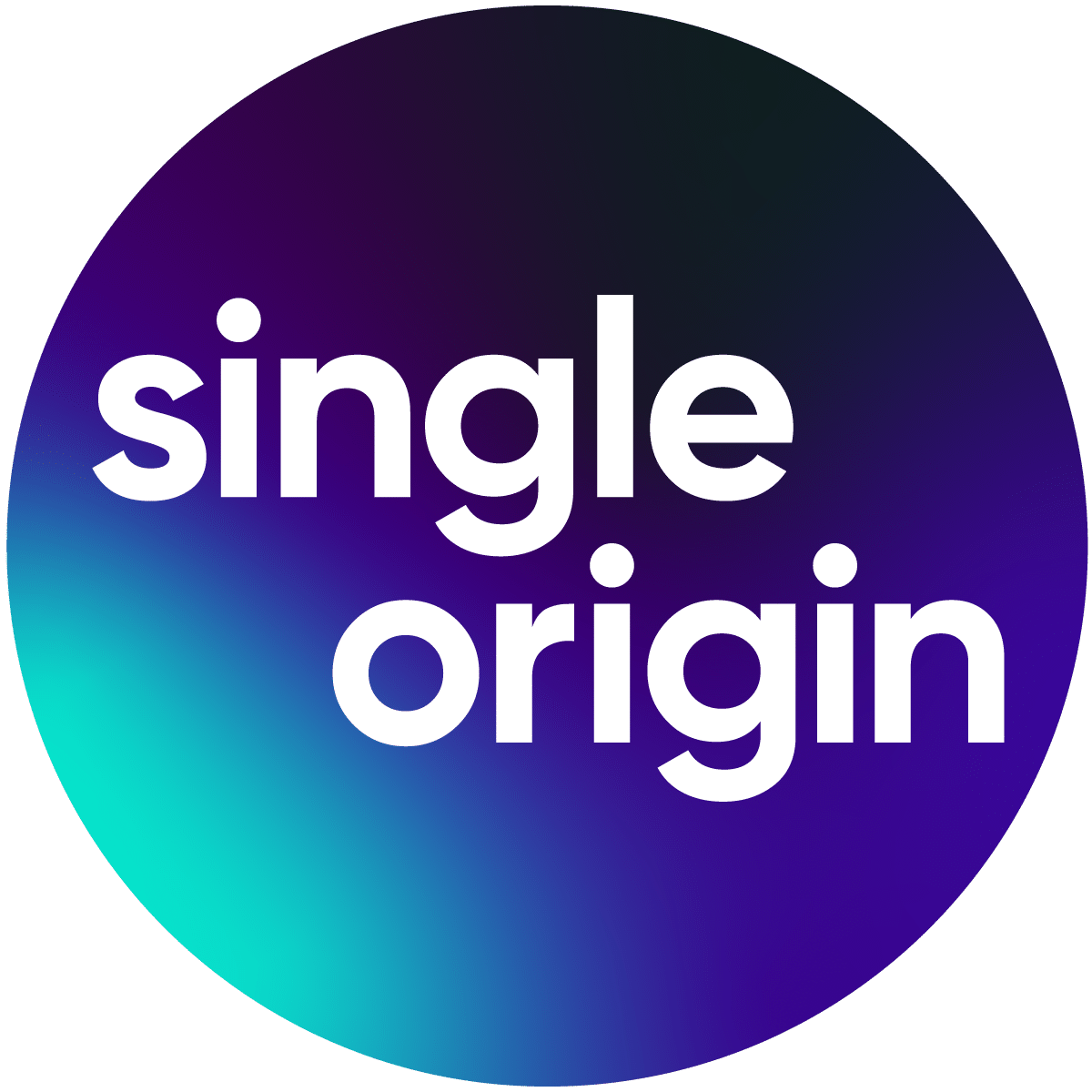Unlocking business growth is a top priority for most organizations, and in today’s digital landscape, a robust B2B SEO strategy can be a game-changer.
With the right approach, your company can harness the power of search engines to drive organic traffic, attract qualified leads, and ultimately boost revenue.
But how do you find the ideal B2B SEO agency to help you achieve these goals?
In this blog post will learn:
- The essential steps and components of a winning B2B SEO strategy.
- How to find the ideal B2B SEO agency to help you achieve your goals.
- What the key elements of a successful SEO campaign actually look like.
Choosing the Right B2B SEO Agency
The first step towards unlocking business growth through B2B SEO is selecting the right agency to partner with.
A suitable B2B SEO agency can drive business expansion, augment organic traffic, and enhance search engine rankings.
When evaluating potential partners, it’s essential to consider factors such as customer service, staff experience, reporting, transparency, and past performance.
Moreover, assessing the agency’s expertise in conducting technical SEO audits is crucial, as this can significantly impact your website’s performance.
But how can you truly gauge an agency’s expertise?
Evaluating Expertise
Assessing an agency’s expertise in B2B SEO is crucial for ensuring that they can effectively address your unique business needs.
One way to gauge an agency’s expertise is by examining their industry knowledge, client testimonials, and case studies.
For instance, Single Origin has extensive experience in SaaS and B2B digital marketing services, and specializes in the SaaS niche, and focuses on understanding search intent to create effective SEO strategies.
Thoroughly researching an agency’s past performance can ensure that you’re partnering with a team that truly understands your industry and can deliver results.
Another important aspect of evaluating expertise is understanding the unique challenges that B2B companies face with their websites. Pricing structures can be tailored to the individual customer. Customers may need to be logged in to view certain sections of the website.
How has a B2B SEO agency addressed these challenges in the past?
By looking into how a B2B SEO agency has addressed these challenges in the past, you can gain valuable insights into their ability to tailor their approach to your specific needs.
Comparing Services
Once you’ve evaluated an agency’s expertise, it’s important to compare the different types of services they offer to determine the best fit for your business needs. B2B SEO agencies provide a range of services, including link building, SEO content creation, and SEO management.
By comparing the cost and the services you’ll have access to, you can ensure that you’re making the most informed decision for your organization.
But what specific services align best with your business’s goals and objectives?
At Single Origin, we offer custom SEO strategies, keyword research, on-page optimization, technical audits, link building, content creation, implementation services, and fractional CMO services.
By examining the services offered by various agencies, you can identify which one aligns best with your business’s goals and objectives.
Assessing Communication and Collaboration
Effective communication and collaboration are essential components of a successful partnership with a B2B SEO agency. Here are some steps to follow.
- Establish clear goals and expectations.
- Work in tandem with the SEO team to determine the most beneficial objectives for your business.
- Schedule a meeting to evaluate if the company is a good fit for your needs and capable of understanding your brand and industry.
By following these steps, you can significantly impact the success of your SEO efforts.
Maintaining regular updates, progress reports, and personal connections throughout the engagement is crucial to ensure effective communication. By fostering open lines of communication, you can facilitate a more streamlined process and address any issues or concerns that may arise during the course of the partnership.
How does effective communication lead to a more successful and productive B2B SEO campaign?
At Single Origin, we have honed the art of effective communication to lead to more productive and successful B2B SEO campaigns.
Our approach emphasizes:
- Close Contact with Sales Teams: Being in close contact with the client’s sales teams helps the SEO agency understand prospect pain points, and the language prospects use to describe those pain points and problems. This information serves as valuable keyword research for expanding SEO campaigns and targeting relevant search terms.
- Personalized SEO Strategy: This deeper understanding our the client’s brand, customer, and industry inform a personalized SEO strategy that addresses the specific needs of the client’s business, ensuring the campaign is tailored for success.
- Data-Driven Decisions: Regular updates and progress reports enable the client and the SEO agency to analyze data and identify trends and patterns, helping the agency make data-driven decisions to optimize the B2B SEO campaign and drive better results.
Ultimately, this type of relationship and communication will lead to a more successful and productive B2B SEO campaign.
Essential Components of a B2B SEO Strategy
A successful B2B SEO strategy consists of several key components that work together to drive organic traffic, attract qualified leads, and boost search engine rankings.
But how exactly does each component contribute to the overall success of your B2B SEO efforts?
These components include:
- Keyword research and analysis
- Technical SEO optimization
- Content marketing and promotion
- Link building strategies
By understanding the importance of each element and how they contribute to the overall success of your B2B SEO efforts, you can ensure that your campaign is as effective as possible.
The ultimate goal of a B2B SEO campaign is to achieve the highest possible rankings on the first page of search engine results pages (SERPs) for relevant keywords associated with your business model and target audience. By optimizing your website and implementing a well-rounded SEO strategy, you can improve your online visibility, attract more organic traffic, and generate more qualified leads for your business through search engine marketing.
Keyword Research and Analysis
“Identifying high-value keywords that will attract qualified leads and help your website rank higher on search engine results pages (SERPs) is a crucial step in any B2B SEO campaign.
But how can you identify the most valuable keywords for your business?
The initial step in an effective B2B SEO campaign is conducting keyword research, which is paramount for directing pertinent traffic to your pages and recognizing high-quality keywords to prioritize in the long run.
Some B2B SEO agencies, like Single Origin, begin their strategy by:
- Identifying opportunities for immediate success from the client’s current content.
- Conducting thorough keyword research and analysis to gain valuable insights into the search terms your target audience is using.
- Optimizing your website and content accordingly.
- Ultimately leading to increased organic traffic and higher search engine rankings.
Technical SEO Optimization
In addition to keyword research and analysis, optimizing the technical aspects of your website is crucial for improving its search engine performance and user experience.
But what are some specific technical issues that can significantly impact your website’s performance?”
Technical SEO refers to the specialized, search engine compliant technical approach designed to optimize onsite performance and search engine optimization. By addressing issues such as page load speed, mobile responsiveness, and website security, you can ensure that your website is easily accessible and user-friendly.
Every B2B SEO agency offers comprehensive technical SEO audits designed to optimize websites for search engine visibility.
As a top SEO company, we provide SEO services that can uncover potential issues that may be negatively impacting your website’s performance and search engine rankings, allowing you to address them and create a more optimized online presence.
Content Marketing and Promotion
Creating valuable, relevant, and engaging content is a key component of any successful B2B SEO strategy.
But how can you craft content that truly resonates with your target audience and drives more organic traffic to your website?
By crafting content that addresses the needs and interests of your target audience, you can drive more organic traffic to your website and improve its search engine rankings. Additionally, promoting your content through various channels, such as social media and email marketing, can help increase its reach and generate even more traffic.
Some B2B SEO agencies, like Overthink Group, focus on creating “link bait” content that other brands and experts are likely to discuss and share instead of sending unsolicited link requests to industry thought leaders. By focusing on creating high-quality, engaging content that resonates with your target audience, you can boost your B2B SEO efforts and generate more organic traffic.
Link Building Strategies
Link building is another crucial aspect of a successful B2B SEO campaign. Acquiring high-quality backlinks from other websites can help improve your website’s authority and search engine rankings.
But how can you ensure that your backlinks are seen as valuable by search engines and contribute to higher rankings?
There are various methods for acquiring high-quality backlinks, such as:
- Content marketing
- Creating helpful tools
- Email outreach
- Broken link building
When developing your link-building strategy, it’s important to focus on acquiring links from reputable sources that are relevant to your industry. This can help ensure that search engines see your backlinks as valuable and can contribute to higher rankings. By implementing effective link-building strategies, you can enhance your B2B SEO efforts and drive more organic traffic to your website.
Get a Free Website Performance Audit
Find out how your website stacks up with our complimentary website grading tool. Simply enter your website and email and see the areas of your website that need the most help – Performance, SEO, and Usability included.
Measuring the Success of Your B2B SEO Campaign

But what specific metrics and data should you be tracking, and how can you use that data to make informed decisions?
Here are some steps to help you track and measure your SEO success.
- Set key performance indicators (KPIs) to define your goals and objectives.
- Utilize analytics tools, such as Google Analytics, to track website traffic, keyword rankings, and other important metrics.
- Conduct regular reporting to analyze the data and identify trends and patterns.
- Make adjustments to your SEO strategies based on the insights gained from the data. By following these steps, you can gain valuable insights into your marketing value chain and evaluate the overall efficacy of your SEO efforts.
Monitoring your B2B SEO campaign’s progress can help you identify areas for improvement and make necessary adjustments to maximize your growth prospects. By consistently evaluating your campaign’s performance, you can ensure that your B2B SEO efforts are yielding the desired results and driving sustainable growth for your business.
Setting KPIs
Establishing clear and measurable objectives for your B2B SEO campaign is crucial for gauging its effectiveness. KPIs, or Key Performance Indicators, are quantifiable targets that demonstrate how individuals or businesses are meeting their goals or objectives. By setting KPIs, you can focus on strategic and operational development, provide an analytical basis for decision-making, and highlight what is most important.
When establishing KPIs for your B2B SEO campaign, it’s important to take into account the business’s targets and objectives, the resources available, and the timeline for achieving the desired outcomes. Additionally, it’s recommended that KPIs are formulated in a SMART (specific, measurable, achievable, relevant, and time-bound) manner. By setting clear and measurable KPIs, you can effectively track your B2B SEO campaign’s progress and make data-driven decisions to optimize your efforts.
Regular Reporting and Adjustments
Consistent reporting and making necessary adjustments to your B2B SEO strategy based on data analysis are essential for ensuring the success of your campaign. Regular reporting and adjustments can help you pinpoint areas for improvement and make the necessary changes to optimize your growth prospects.
By analyzing reports and data to identify potential areas of improvement, you can implement suitable adjustments to your B2B SEO strategy. This can help you maximize the effectiveness of your campaign and drive sustainable growth for your business. Ultimately, regular reporting and adjustments are a crucial aspects of a successful B2B SEO campaign.
Schedule a Complimentary Consultation
Are you, or your team, looking for ways to improve your website, digital marketing, and overall ROI from paid channels? Single Origin provides complimentary consultations to help your team understand areas of improvement. Schedule yours now!
Expanding Your B2B SEO Efforts
Expanding B2B SEO efforts beyond traditional search engines can significantly increase global visibility, optimize rankings in search engine results, and allow organizations to target specific countries and languages.
But how can you effectively expand your B2B SEO efforts to reach a larger audience and tap into new markets?
By expanding your B2B SEO efforts to include international SEO and paid advertising, you can reach a larger audience and tap into new markets, ultimately driving more organic traffic and generating more leads.
Implementing international SEO strategies and leveraging paid advertising in conjunction with your existing B2B SEO efforts can help you create a more comprehensive and effective digital marketing strategy. By targeting decision-makers in different countries and utilizing various advertising channels, you can increase your global visibility and generate more leads for your business.
International SEO Strategies
Targeting decision-makers in different countries can help increase your global visibility and generate more leads for your business. International SEO is the process of optimizing a website for search engines in multiple countries or languages. This can be achieved through:
- Language targeting
- Hreflang tags
- Designated URL structures
- Other localization signals
By implementing these strategies, businesses can reach a global audience and improve their international visibility.
By implementing international SEO strategies, such as researching the target language, local search terms, and local competitors, you can optimize your website and content for a global audience. This can ultimately lead to increased brand awareness, access to new markets, and higher search engine rankings, helping you drive more organic traffic and generate more leads for your business.
Leveraging Paid Advertising
Integrating paid advertising with your B2B SEO strategy can help boost brand awareness and drive additional traffic to your website. Paid advertising is a digital marketing model wherein businesses bid to display ads to internet users, and the business with the highest bid has their ad displayed and pays for each click on their ad. This model includes various channels such as social media, search engines, and display networks.
By leveraging paid advertising, you can expand your reach, heighten brand recognition, and direct more visitors to your website. Additionally, paid advertising allows you to target specific countries and languages, enabling you to reach a global market and connect with potential customers who may not be actively searching for your products or services.
Summary
In conclusion, a well-executed B2B SEO strategy can unlock business growth by driving organic traffic, attracting qualified leads, and boosting search engine rankings. By choosing the right B2B SEO agency, implementing the essential components of a successful SEO campaign, measuring your success, and expanding your efforts to include international SEO and paid advertising, you can create a comprehensive and effective digital marketing strategy that drives sustainable growth for your business.
FAQ
A successful B2B SEO strategy requires keyword research and analysis, technical optimization, content marketing and promotion, and link building.
To evaluate the expertise of a B2B SEO agency, review their industry knowledge, client testimonials and case studies to gain an understanding of their capabilities.
This will help you determine if the agency is a good fit for your business and if they have the necessary skills to help you achieve your goals.
Expanding B2B SEO efforts beyond traditional search engines can significantly increase global visibility, optimize rankings in search engine results, and allow organizations to target specific countries and languages.
By leveraging international search engines, such as Baidu and Yandex, businesses can reach a larger audience and gain more exposure in the global market. Additionally, optimizing content for local search engines can help organizations rank higher in search engine results for specific countries.
Measuring success for a B2B SEO campaign can be done by setting KPIs, tracking analytics data, and conducting regular reporting and adjustments.
Paid advertising in conjunction with B2B SEO efforts can boost brand awareness, drive additional traffic to your website, and enable targeting of specific countries and languages.
By leveraging both paid and organic search strategies, businesses can maximize their visibility and reach their target audience more effectively. This can help to increase website traffic, generate leads, and ultimately drive more sales.



